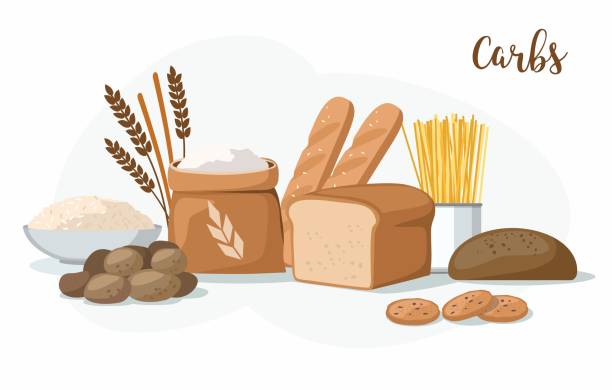This content is for informational and educational purposes only. Always consult a qualified healthcare provider.
Last Updated on July 9, 2025 by Grace Oluchi
Low-carb diets are quite popular. Many people go on low-carb diets to lose weight. But is it really about? The purpose of a low-carb diet is to reduce the amount of carbohydrates in your meals. Namely, those found in grains, starchy vegetables, and fruits. Low-carb diets aim to use fat as fuel instead of glucose (derived from carbs). Which may help with fat loss. However, it is important that you know the types, benefits, and risks before starting.
📋 Table of Contents
The Purpose of Low-Carb Diets
A low-carb diet is generally used for weight loss. It involves limiting or eating less carbohydrates like the ones found in bread, pasta, rice, sugary drinks, and processed foods. The specific amount of carbs you’re allowed to eat can vary because some diets are more restrictive than others.
Common Types of Low-Carb Diets
There are three common types of low-carb diets such as:
1. Very low-carb (Keto) diets: When you’re on a very low-carbohydrate diet, you’d be required to be on a daily limit of 20 to 57 grams. Which would push your body into a state of Ketosis, where it burns fat for fuel, and produces ketones.
2. Moderate low-carb (Atkins) diet: This is a bit more flexible and allows you to slightly increase your carb intake around 50to 100 grams a day.
3. Liberal low-carb (Paleo) diet: A diet that may allow an intake of 100 to 150 grams of protein per day. On this diet, you’d focus on whole, unprocessed foods and remove grains, legumes, and dairy from your meals.
This is to tell you that these diets require you to focus on eating foods rich in protein and fats, along with vegetables that are non-starchy vegetables.
Benefits of Low-Carb Diets
Many things contribute to the beneficial effects of low-carb diets for fat loss:
Weight loss: You might experience a reduction in your appetite due to protein and fat, as they can increase the feeling of fullness. Which may lead to you eating less, therefore consuming fewer calories. You may lose a significant amount of weight, especially in the first few weeks of starting the diet.
Better blood sugar control: Aside from weight loss, it may help improve your insulin levels, which can lower your risk of type 2 diabetes.
Burns fat: When your carbohydrate intake is low, the body resorts to using stored fat for energy to perform physical activities, which may lead to fat loss.
Water weight loss: At first, low-carb diets can cause your body to lose water weight because it is using up glycogen stores. This may help reduce things like face puffiness and bloating, which a lot of people want.
Low-carb diets may also reduce lipid levels in the body, which can reduce the risk of heart disease.
Cons
- It can be very restrictive, which can be difficult for people who love carbohydrate-rich foods.
- It may cause nutrient deficiencies because low-carbohydrate diets can be low in certain nutrients like fiber, certain vitamins, and minerals.
- It has the potential to negatively affect your gut health, as some research suggests that these diets may be bad for our gut health.
- Some people might get symptoms that are similar to the flu, for example, headaches, fatigue, and nausea. And this happens when they just start a very low-carbohydrate diet.
- You might start to get constipated because when you’re on a low-carbohydrate diet, there will be less intake of fiber, which can lead to constipation.
- Some health conditions may make it harder to follow a low-carb diet, which can make it not followable for certain people.
Important Things To Do Before Following a Low-Carb Diet
1. Speak to your doctor before starting, because it’s VERY important.
2 . Stay hydrated by drinking enough water each day. Also, try to increase your salt intake; it’s very important.
3. Eat whole foods and put processed foods away. Start buying and eating foods like meats, fish, eggs, vegetables, and healthy fats.
4. Plan your meals and snacks so you’d be able to get enough nutrients, and stay within the range of carbs you’re allowed to eat. Also, planning your meals can help you not fall into temptation by eating what you shouldn’t eat.
The bottom line
Low-carb diets can be folowed. However, it’s best to approach them with care. If you’re going to start eating less to no carbs, you need to gather knowledge about it, plan, and focus on your health in general. Most importantly, speak with a doctor about your decision, so you can know if it’s right for you, and follow the right steps.

